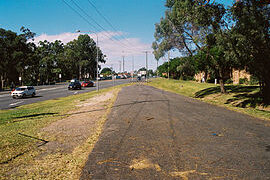Natural Teething Solutions for Soothing Your Baby
Welcome, amazing parents! Are you watching your little bundle of joy morph into a grumpy gus due to sore gums? Teething can be a tough milestone for both babies and their parents, but fear not! We’re here to give you the scoop on natural teething remedies that can help your baby find relief the gentle way.
Before we dive in, remember that every baby is unique and what works for one child may not work for another. It’s always important to consult with your pediatrician before trying new teething remedies.
Understanding Teething
First things first, let’s understand what your tiny tot is going through. Teething typically begins around 4 to 7 months of age, but it can start earlier or later. It’s the process where baby teeth, also called milk teeth, start to emerge through the gums. This period can be uncomfortable for your little one, causing symptoms such as drooling, irritability, and a sudden urge to chew on everything in sight!
Natural Remedies to Ease Teething Pain
Now, let’s uncover some kind, earth-friendly, and effective methods to calm your baby’s teething troubles.
Cold Spoons and Washcloths
A classic method that stands the test of time is using a cold spoon or washcloth. Pop a clean metal spoon in the fridge for a few minutes or moisten a washcloth with water, twist it into a rope shape, and freeze it. Either of these can be given to your baby to chew on. The cold sensation is incredibly soothing on the gums and acts as a natural anti-inflammatory.
Teething Toys Made from Natural Materials
When it comes to teething toys, look for options made from natural materials like wood, rubber, or cotton. These are not only safe for your baby to gnaw on, but they are also eco-friendly and free from harmful chemicals. Always ensure that teething toys are too large to swallow and have no small parts that could be a choking hazard.
Gentle Gum Massage
Parents, prepare those pinkies! Washing your hands thoroughly and gently massaging your baby’s gums can provide significant relief. The light pressure from your fingertip helps to alleviate the discomfort and distract from the pain.
Herbal Remedies
Some parents find that herbal remedies such as chamomile, cloves, or catnip can be effective. These can be used in various forms like herbal teas (cooled down), oils (suitably diluted), or even a chamomile tea bag chilled in the fridge. Always use these remedies sparingly and under the guidance of a healthcare provider.
Ensuring Safe Teething Practices
Safety is paramount when it comes to your baby. It’s important to avoid items that could break apart and become choking hazards. Additionally, natural remedies like teething gels with benzocaine or homeopathic teething tablets are sometimes suggested, but these can have potential risks and should be used with caution or avoided entirely.
Most importantly, this journey of teething, while a bumpy one, is temporary. With lots of cuddles, patience, and the right natural remedies, you’ll be able to help your little one get through this milestone with as little discomfort as possible. So, parents, equip yourselves with these natural teething tools and be ready to tackle those teething woes with confidence!
Stay with us as we’re just scratching the surface of this comprehensive guide. In our next section, we’ll delve into foods that can help with teething, hygiene tips during this period, and the signs that indicate teething might not be the only issue at play. We’re on this teething adventure together, so let’s make it as smooth-sailing as it can be!

5 Things Parents Should Know in Preparing for Natural Teething
As parents, preparing for your baby’s teething can seem daunting. Here are five essential tips to empower you on this natural teething journey.
1. Familiarize Yourself with Teething Symptoms
Knowledge is power! Understanding the common signs of teething can help you identify when your baby might need extra assistance. These symptoms can include drooling, biting, gum rubbing, sucking, irritability, and sometimes even a minor increase in temperature. Be observant and note any changes in your baby’s behavior that may suggest the start of teething.
2. Stock Up on Natural Teething Tools
Be proactive and have your arsenal ready! Natural teething rings, cold spoons, and moistened, frozen washcloths are excellent tools to have on hand. Consider sourcing teething toys from reputable brands committed to natural, safe products. By being prepared, you can offer a remedy as soon as your baby shows signs of discomfort.
3. Introduce Solid Foods at the Right Time
When your baby is of the right age, usually around 6 months, chilled foods like cucumber or carrot sticks can provide relief and introduce new foods into your baby’s diet. Always supervise your baby during these times to prevent any choking hazards.
4. Maintain Oral Hygiene
Good gum health can make teething easier. Even before the first tooth appears, you can clean your baby’s gums with a soft, damp cloth twice a day. This habit can also help your baby get accustomed to regular oral care routines later on.
5. Understand That Each Baby is Unique
While it’s great to learn from others’ experiences, remember that every child is different. Some may have little to no symptoms, while others may have a more challenging time. Stay flexible and patient, as you might need to try a variety of remedies to see what works best for your baby.
By being well-informed and prepared, you can ensure that the teething process is as comfortable as possible for both you and your little one. Teething is a natural part of growth, and with these tips and remedies, you’ll be able to provide your baby with the care and comfort they need during this important stage of development.
Foods That Can Help with Teething
For babies old enough to eat solid foods, certain snacks can double as natural teething aids. Chilled fruits like bananas or berries, lightly frozen bagels, and even cold yogurt can be gentle on sore gums. Always pay close attention to your baby while they eat to keep them safe.
Hygiene Tips During Teething
While your baby is teething, maintaining oral hygiene is crucial. Clean their mouths regularly, and sanitize teething toys often to prevent the growth of bacteria. Starting good oral habits now lays the foundation for healthy teeth in the future.
Signs That Something Else Might Be at Play
Teething can bring discomfort, but it’s usually not the cause of severe symptoms. If your baby has a high fever, diarrhea, or is excessively irritable, these could be signs that something else might be wrong. In such cases, contact your pediatrician immediately.
The adventure of teething is part of your baby’s growth, and while it might be challenging, it’s also incredibly rewarding to see your baby’s first smile with a new tooth! Keep these insights in mind as you support your little one through their teething phase.
See more great Things to Do with Kids in New Zealand here. For more information see here
Disclaimer
The articles available via our website provide general information only and we strongly urge readers to exercise caution and conduct their own thorough research and fact-checking. The information presented should not be taken as absolute truth, and, to the maximum extent permitted by law, we will not be held liable for any inaccuracies or errors in the content. It is essential for individuals to independently verify and validate the information before making any decisions or taking any actions based on the articles.




